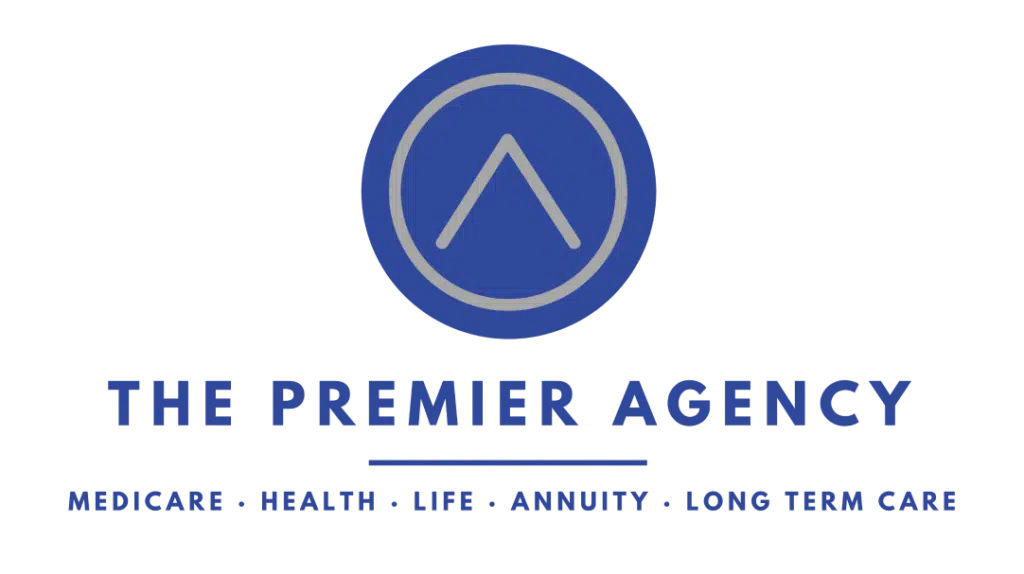Navigating a career in Medicare services demands more than just expertise in healthcare; it requires a steadfast commitment to compliance and a robust ethics framework. Leaders in this field not only shape the culture of care but also ensure that every contract upholds the highest standards. With proper certification, professionals safeguard the integrity of Medicare services, thereby strengthening trust and ensuring that patient welfare remains at the forefront. Keeping abreast of these principles is not just beneficial; it is foundational for a flourishing career in this vital sector. Keep reading to discover how these roles are pivotal in maintaining the excellence of healthcare provision.
Key Takeaways
- Compliance With Medicare Regulations Is Essential for Professional Integrity and Patient Wellbeing
- Ethical Conduct in Medicare Services Fosters Trust, Transparency, and Quality in Patient Care
- Continuous Education and Staying Informed of Regulatory Changes Is Critical for Medicare Professionals
- Effective Communication and Problem-Solving Skills Are Valuable in Navigating Medicare‘s Regulatory Complexities
- Networking and Professional Growth Are Instrumental in Advancing a Career in Medicare Services
Understanding the Importance of Compliance in Medicare Careers

In the world of Medicare services, professionals must have expertise and be advocates for their clients. To build a successful career in this field, it’s important to follow the rules to maintain the integrity of your work and ensure the well-being of those you serve.
This means staying up to date with complex Medicare policies and keeping an eye on updates from regulatory agencies. Working in this industry requires staying informed about the latest changes in healthcare laws.
Understanding the serious consequences of not following the rules is essential for any Medicare services professional to avoid risking their career and the care of their clients.
Exploring Federal and State Health Care Regulations
The fabric of Medicare services is woven with a complex array of federal and state regulations designed to protect the community and uphold the law. Entities like Cambia Health Solutions underscore the need for accessible services while preventing fraud. Compliance with such directives is not merely about following rules; it is about nurturing an environment of trust and transparent care within the Medicare community.
Keeping Up With Changes in Health Care Laws
Staying current with healthcare laws is a dynamic process that places Medicare services professionals at the forefront of regulatory shifts. Each strategy and decision hinges on a deep understanding of regulation and its impact on managed care. Professionals must regularly consult updated resources, be they data analysis reports or government websites, to ensure the information guiding their services remains accurate and compliant.
The Impact of Non-Compliance on Medicare Services
The Office of Inspector General (OIG) carefully oversees Medicare services to ensure that ethical standards are upheld. Not following these standards, whether in prescribing medications or behaving appropriately, puts both patients and professionals at risk. Conducting thorough risk assessments promptly and understanding laws and guidelines are crucial to protecting against the potential consequences in the healthcare field.
Ethics: The Heart of Patient-Centered Medicare Services

Strong ethical principles are essential for a successful career in Medicare services, as they help build and maintain trust with beneficiaries.
Professionals in this field follow ethical practices to ensure that every person is treated with respect and dignity.
Commitment to protecting patient privacy and rights shows the importance placed on each person’s personal information, especially in financial and payment matters.
Those involved in navigating Medicare’s complexities are responsible for making ethical decisions. This involves maintaining a balance between following regulations and meeting each patient’s unique needs.
Advocating for and promoting a culture where ethical behavior is the norm rather than the exception not only benefits the individuals being cared for but also strengthens the integrity of the Medicare services field.
Developing Trust Through Ethical Practices
In the realm of Medicare services, the practice of infusing every action with ethical consideration establishes a trust that becomes the cornerstone of patient relationships. A chief compliance officer, deeply versed in health protocols and adept in accounting for the moral implications of corporate decisions, is pivotal in fostering this trust. This role not only emphasizes the importance of adhering to regulations but also ensures that integrity is interwoven with the fabric of patient care.
Ensuring Patient Confidentiality and Rights
In Medicare services, the privacy of individuals is paramount, and it is the responsibility of professionals to honor and protect it. Upholding a strict policy on patient confidentiality underscores the ethics that power health solutions across the board. Every innovation in service delivery or public policy must consider the impact on patient rights, a crucial factor that can also influence the salary earned by dedicated professionals in this field.
| Aspect | Importance | Impact on Medicare Services |
|---|---|---|
| Confidentiality Policy | Crucial for trust-building | Enhances the quality and integrity of patient care |
| Health Solutions | Central to patient wellbeing | Drives advancement and adherence to ethical standards |
| Innovation | Key to service improvement | Shapes a future-focused, sustainable Medicare program |
| Impact of Public Policy | Vital for regulatory alignment | Guides professionals in lawful and ethical practices |
| Professional Salary | Reflects the value of ethical service | Attracts and retains those committed to exemplary care |
Ethical Decision-Making in Medicare Services
In the sphere of Medicare services, providers must embrace due diligence, fusing research with innovative strategies to inform ethical decision-making. This commitment ensures that ethics remain at the foreground of all interactions and care provisions, cementing trust and quality in the patient-provider relationship.
Promoting a Culture of Ethical Excellence
In pursuing ethical excellence within Medicare services, organizations are strengthening their internal control systems to prevent the spread of discrepancies and uphold integrity. Attention to robust internal auditing helps to ensure that the experiences delivered to beneficiaries meet the highest standard of care. Integrating these practices demonstrates to employees the value placed on transparency and the serious stance against violations, like those outlined in the False Claims Act.
| Organizational Focus | Action | Outcome |
|---|---|---|
| Internal Control Systems | Strengthening procedures | Ensures integrity and transparency |
| Internal Auditing | Conducting regular checks | Maintains high standards of care |
| Employee Education | Training on regulations and ethics | Empowers compliance and prevents fraud |
| Adherence to Laws | Alignment with False Claims Act | Minimizes legal risks and fosters trust |
Essential Skills for Compliance and Ethics Professionals

Professionals in this field need skills to handle regulations and maintain high service standards. Effective communication helps convey complex ideas clearly, and analytical skills are important for problem-solving.
Understanding legal requirements is essential to align with healthcare standards. Showing leadership and teamwork in a regulatory environment sets the stage for success.
These skills strengthen one’s position in Medicare services, promoting integrity and dedicated care.
Mastering Effective Communication
In the intersecting worlds of Medicare services, business, and ethics, mastering effective communication is a pivotal skill. For those striving to balance an organization’s dynamics with the compliance expectations of regulatory bodies like the Office of Inspector General (OIG), clarity in conveying complex concepts is essential. A professional, perhaps with a master of business administration, must articulate policies and procedures not only with precision but also in a manner that champions equal opportunity and an inclusive atmosphere within the workspace.
| Skill Area | Relevance to Medicare Services | Impact on Organization |
|---|---|---|
| Effective Communication | Facilitates clear understanding of Medicare guidelines and ethical standards. | Strengthens the fabric of team dynamics and bolsters compliance culture. |
| Equal Opportunity Advocacy | Ensures equitable service provision, upholding the social responsibility aspect of Medicare. | Promotes diversity and inclusion, enhancing the organization’s reputation and employee morale. |
| Business Acumen | Aligns Medicare service offerings with sustainable business practices. | Drives organizational growth and positions the business as a top contender in the health sector. |
| Regulatory Compliance | Protects against infractions identified by the OIG and ensures service integrity. | Mitigates risk and secures the organization’s standing in a competitive market. |
| Leadership in Ethics | Cultivates trust and respect among beneficiaries, essential for patient-centered care. | Creates a benchmark for ethical practice, influencing overall organizational behavior. |
Understanding Legal Requirements and Standards
Professionals in Medicare services careers are required to navigate a database of complex health insurance regulations, ensuring that every action aligns with both legal mandates and ethical norms. Continuous education of healthcare laws not only safeguards the money invested in the Medicare system but also fortifies the trust beneficiaries place in the services they receive.
- Navigating legal complexities within a sprawling health insurance database.
- Pursuing ongoing education to remain adept in current and emerging Medicare regulations.
- Ensuring financial integrity and lawful utilization of funds in the Medicare system.
- Strengthening beneficiary trust through compliance with legal and ethical standards.
Leadership and Teamwork in a Regulatory Environment
In the healthcare industry, where regulatory compliance governs each facet of service, leadership and teamwork become pivotal in shaping a career in Medicare services. Leaders, general in their strategic approach yet specific in their understanding of health policies, ensure the seamless integration of medication protocols and patient care with the regulations that bind them. At the same time, human resources play a crucial role in harmonizing the collective skills and knowledge of the workforce to drive excellence and innovation in patient services.
Career Outlook for Ethics and Compliance Professionals

The landscape of healthcare continues to transform, with a growing focus on compliance and ethical conduct, creating a fertile ground for professionals within the Medicare space.
As consumer needs evolve and federal healthcare mandates reshape policy, the demand for skilled individuals committed to upholding legal and moral standards skyrockets, making careers in this field both stable and rewarding.
Healthcare providers navigating the complexities of insurance regulations look to those well-versed in the latest healthcare reforms to guide their practices.
This dynamic environment offers a variety of career pathways, allowing for both personal advancement and the opportunity to significantly impact quality care delivery in the ever-changing world of Medicare services.
Demand for Professionals in the Medicare Space
The demand for skilled professionals in the Medicare space is surging. Services like drug prescription plans, telehealth, and patient security require robust risk management and meticulously designed compliance programs. These experts are the backbone of ensuring that Medicare services adapt to new healthcare challenges while remaining compliant with current laws and regulations.
Evolving Roles in the Wake of Healthcare Reforms
Healthcare reforms have propelled various roles to the forefront of Medicare services, enabling professionals to merge financial acumen with program development skills. As the landscape shifts, those versed in crafting policies for disability coverage must balance sensitivity towards beneficiaries with strategic lobbying efforts, ensuring programs evolve to meet the demands of changing legislation.
Potential Career Pathways and Progression
The journey through a career in Medicare services offers numerous opportunities, from policymaking in government agencies to compliance roles within a healthcare company. As medicaid and healthcare programs expand, the need for experts who can navigate the confluence of legal, ethical, and business considerations becomes more pronounced, ushering in new avenues for specialization and advancement.
Common Job Titles in Compliance and Ethics Within Medicare

The healthcare ecosystem relies heavily on specialists who ensure that Medicare services not only meet clinical needs but also adhere to rigorous ethical and compliance standards.
Within this vital framework, several key roles stand out, each with distinct responsibilities contributing to Medicare services’ overall integrity.
Compliance Officers act as the bedrock of Medicare integrity, establishing and maintaining systems to prevent, detect, and correct any potential compliance issues.
Ethics Coordinators dedicate their work to upholding and promoting high standards of ethical behavior, ensuring that every decision aligns with moral guidelines.
Regulatory Affairs Specialists focus their expertise on interpreting and applying Medicare laws effectively, guiding organizations through a complex legislative environment.
Lastly, Privacy Officers play a critical role in protecting sensitive patient information and sustaining trust and confidentiality in patient interactions.
These roles embody the commitment to maintaining the quality and reliability of Medicare services through steadfast compliance and unwavering ethical standards.
Compliance Officer: Guardian of Medicare Integrity
A Compliance Officer serves as the sentinel in the world of Medicare, meticulously enforcing adherence to legal and ethical standards. They are tasked with crafting protocols that foster compliance while rooting out vulnerabilities within healthcare systems, ensuring Medicare services resonate with integrity and transparency. They are responsible for making certain that all operations within the Medicare framework function within the boundaries of established laws, protecting patients and upholding the reputation of healthcare organizations.
Ethics Coordinator: Championing Ethical Practices
An Ethics Coordinator within Medicare services is a pivotal figure in weaving a culture of integrity into the healthcare tapestry. They empower organizations to match actions with ethical beliefs, ensuring that patient care decisions are made with moral clarity and accountability: in essence, they keep the healthcare compass aligned with its true north of ethical conduct.
Regulatory Affairs Specialist: Navigating Medicare Laws
Regulatory Affairs Specialists are the navigators of the Medicare landscape. They are experts who interpret and apply intricate healthcare laws to ensure that organizations sail smoothly through legislative seas. Their work demands a vigilant eye on policy alterations and a steady hand to align company practices with ever-changing regulatory requirements.
Privacy Officer: Protector of Patient Information
In the medicare sector, the Privacy Officer emerges as a vital guardian of personal health information, meticulously ensuring that all patient data is treated with the highest confidentiality and security. This role is key in preserving the trust that is fundamental to patient-caregiver relationships: patients confide sensitive information with the assurance that it will remain secure under the stewardship of a Privacy Officer.
A Day in the Life of a Compliance Professional in Medicare Services

The daily routine of a Medicare compliance professional involves careful attention to detail and close collaboration. They continuously conduct audits and monitoring to make sure that Medicare services comply with federal and state regulations.
These professionals work behind the scenes, coordinating across departments to promote a culture of transparency and compliance. They are committed to ongoing learning to stay up to date with changing healthcare laws and to keep their strategies effective.
When compliance issues arise, they are skilled at developing and implementing solutions to protect the integrity of Medicare services and maintain the trust of those they serve.
Regular Auditing and Monitoring Activities
The daily routine of compliance professionals in Medicare services is anchored by regular audits and constant monitoring. These meticulous checks ensure healthcare providers meet compliance standards and policies imposed by governing bodies are followed rigorously. Such vigilance not only prevents potential legal issues but also reinforces the trust beneficiaries place in Medicare services.
Collaborating Across Departments for Compliance
In pursuit of Medicare compliance, professionals deftly unite departments under a common goal, fostering a collaborative atmosphere that is imperative for meeting regulations effectively. Their daily operations hinge on coordinating with diverse teams—from healthcare providers to IT specialists—ensuring regulations are interpreted uniformly and integrated seamlessly into the various facets of service delivery.
Continuous Learning and Professional Development
For a professional in Medicare services, each day presents an opportunity for growth and mastery through continuous learning and professional development. Staying abreast of regulatory changes and evolving industry standards is a career mandate that ensures not only personal competence but also the highest level of service compliance. This relentless pursuit of knowledge equips compliance professionals to navigate the complex Medicare landscape with confidence and authority.
Addressing Compliance Challenges and Solutions
Confronting compliance challenges is a vital part of ensuring the integrity of Medicare services. Professionals approach each issue with a dedication to finding solutions that not only align with regulatory requirements but also reinforce the service’s commitment to ethical standards. This combination of regulatory conformity and moral obligation provides a dual layer of protection for both beneficiaries and the integrity of the Medicare system itself.
- Identifying discrepancies within Medicare service procedures that may violate regulations.
- Developing strategic solutions to address and rectify compliance issues promptly.
- Implementing corrective measures that sustain ethical practices within the Medicare framework.
Building a Successful Career in Medicare Compliance and Ethics
In the specialized arena of Medicare compliance and ethics, the groundwork for a robust career is constructed on the pillars of certification, ongoing education, active networking, and strategic professional growth.
Aspiring professionals must recognize that their roles carry weighty responsibilities; hence, enhancing their knowledge base through certification programs and continuing education becomes vital.
Engaging with professional networks and participating in organizations focused on healthcare compliance serve as catalysts for exchanging insights and forming collaborative relationships.
While understanding the labyrinth of Medicare‘s regulatory environment is fundamental, forging a path to career progression in this field also demands a proactive approach to seize opportunities and tackle the complexities with expertise and a principled perspective.
Importance of Certification and Continuing Education
Navigating a career in Medicare compliance and ethics hinges on a deep-seated understanding of complex regulations and moral principles. Certifications attest to a professional’s expertise, positioning them as credible voices in their field while continuing education keeps them sharp and adaptable in an environment shaped by continuous legal shifts:
Networking and Professional Organizations
Building connections through networking and engaging with professional organizations opens doors to opportunities that may otherwise remain hidden. These interactions offer Medicare compliance and ethics professionals the chance to exchange ideas, stay informed on best practices, and find mentors who can provide guidance. Effective networking can lead to partnerships that strengthen one’s ability to navigate the complexities of Medicare services with skill and confidence.
Strategies for Career Advancement in Compliance and Ethics
In the realm of Medicare services, those seeking to excel in compliance and ethics may chart their professional growth by embracing leadership roles, where they can guide teams and shape policies. Professionals who demonstrate integrity, stay proactive in regulatory adaptation, and showcase their ability to implement ethical standards effectively often find themselves on a trajectory toward senior positions within their organizations, enhancing their career prospects and influence within the healthcare industry.
Conclusion
Professionals in Medicare services elevate their careers by adhering to compliance and ethics, ensuring legal and moral standards guide their practice.
This dedication to integrity protects patients and enhances the Medicare system’s trust and reliability.
Continuous learning and adherence to evolving regulations are essential for career development and maintaining quality care.
Ultimately, a commitment to compliance and ethical conduct forms the bedrock of a successful and impactful career in the Medicare services industry.




